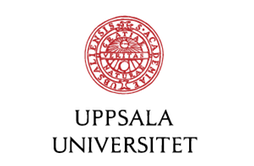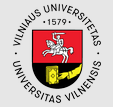Co-designing Computational Thinking and Mathematics Curriculum Framework for Nordic-Baltic Preservice Teacher Education – Research – Department of Teacher Education
Co-designing Computational Thinking and Mathematics Curriculum Framework for Nordic-Baltic Preservice Teacher Education
The project aims to co-design a Computational Thinking (CT) and Mathematics curriculum framework for preservice teachers (PTs) in Estonia (EE), Lithuania (LT), Sweden (SE), and Norway (NO). It addresses the shared need for structured, adaptable teaching materials to better integrate CT into teacher education, as its importance is increasingly emphasized in these countries' curricula.

Project periode
01.08.2025-01.11.2027
Funding

Research group
Læring og undervising av matematikk med digitale verktøy
Project plan
Co-develop the framework through needs analysis, literature review, and expert collaboration.
Pilot and refine the curriculum based on feedback from preservice teachers and teacher educators.
Finalize the framework and scale its implementation across the region.
About the project
The Aim
The CTandME network brings together four universities in the Nordic-Baltic region, Norwegian University of Science and Technology (Norway), Tallinn University (Estonia), Uppsala University (Sweden), and Vilnius University (Lithuania), with the main objective of collaboratively design and implement a Computational Thinking (CT) and Mathematics curriculum framework for preservice teacher education.
This project responds to the growing emphasis on CT in national school curricula across the region and the lack of structured, research-based teacher education programs to support this shift. To address this gap, the project will:
- Co-develop a CT-integrated Mathematics curriculum framework for preservice teachers, tailored to national educational standards and contexts.
- Pilot and refine the curriculum through iterative testing, ensuring it meets the practical needs of teacher educators and preservice teachers.
- Strengthen Nordic-Baltic collaboration in CT and Mathematics education, enhancing the quality and adaptability of teacher training programs.
Methods
Using a design-based research (DBR) approach, the project will unfold over three years:
- Year 1: Co-develop the framework through needs analysis, literature review, and expert collaboration.
- Year 2: Pilot and refine the curriculum based on feedback from preservice teachers and teacher educators.
- Year 3: Finalize the framework and scale its implementation across the region.
Expected Outcomes
The project’s outcomes will include a comprehensive curriculum framework, best practice reports, and guidelines for policymakers and educators. Additionally, by training preservice teachers in CT-integrated pedagogy, the project will foster knowledge transfer to in-service teachers, strengthening the long-term impact of CT integration in Nordic-Baltic classrooms.
2025
- 21.08.25: Kick-off meeting online
- mid-November 2025: Methodology Discussion: In-person meeting in Trondheim at NTNU
- Initial data collection: Interviews and surveys
2026
- Workshop in Uppsala, at Uppsala University
- Analysis of initial findings in Tallinn, at Tallinn University
- Final interviews
- Drafting tentative curriculum segment
- Consolidating all findings in Vilnius, at Vilnius University
External participants
- Valentina Dagiene, Professor, Vilnius University, Lithuania
- Mart Laanpere, Professor, Tallinn University, Estonia
- Lennart Rolandsson, Associate Professor, Uppsala University, Sweden



